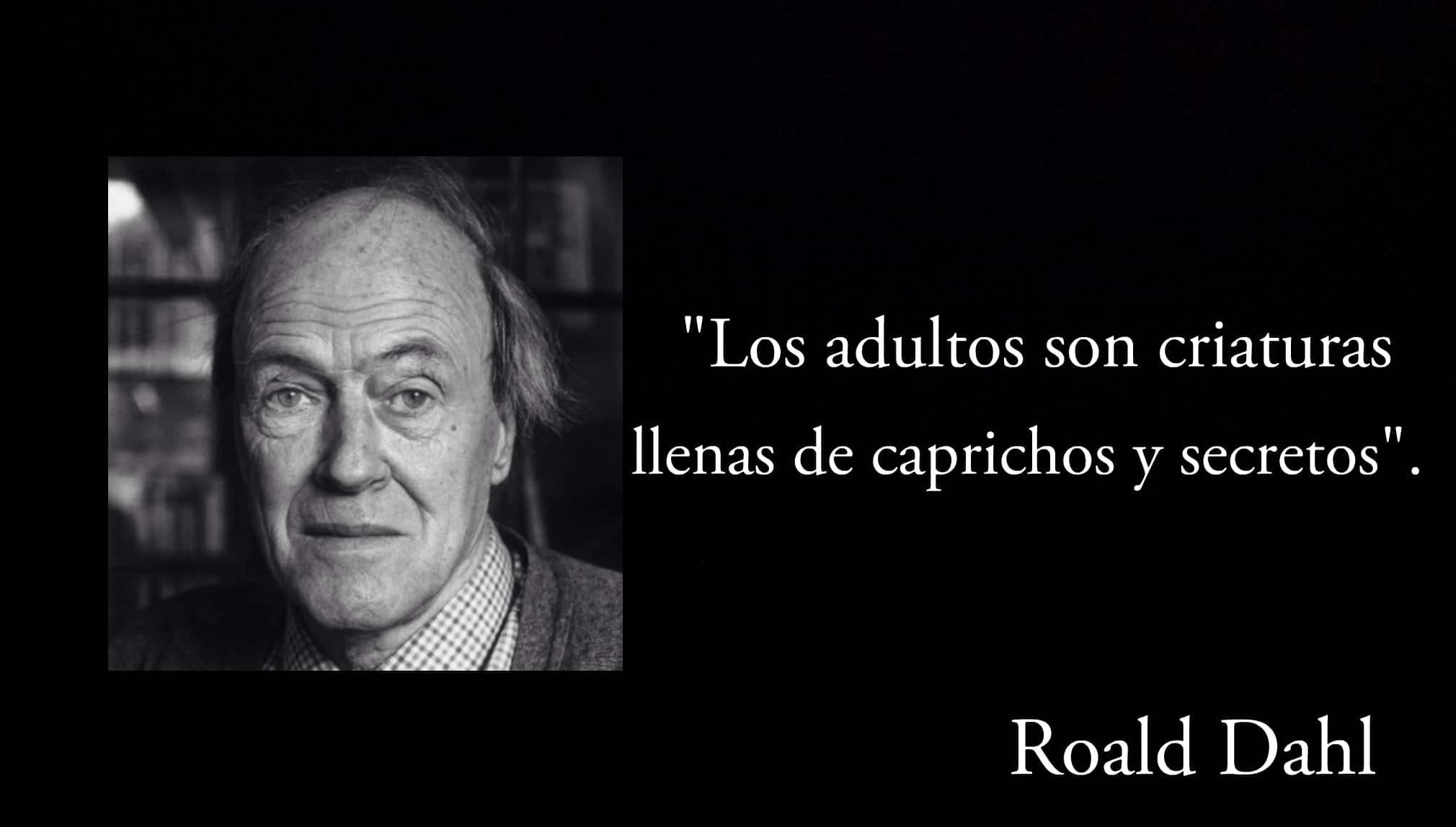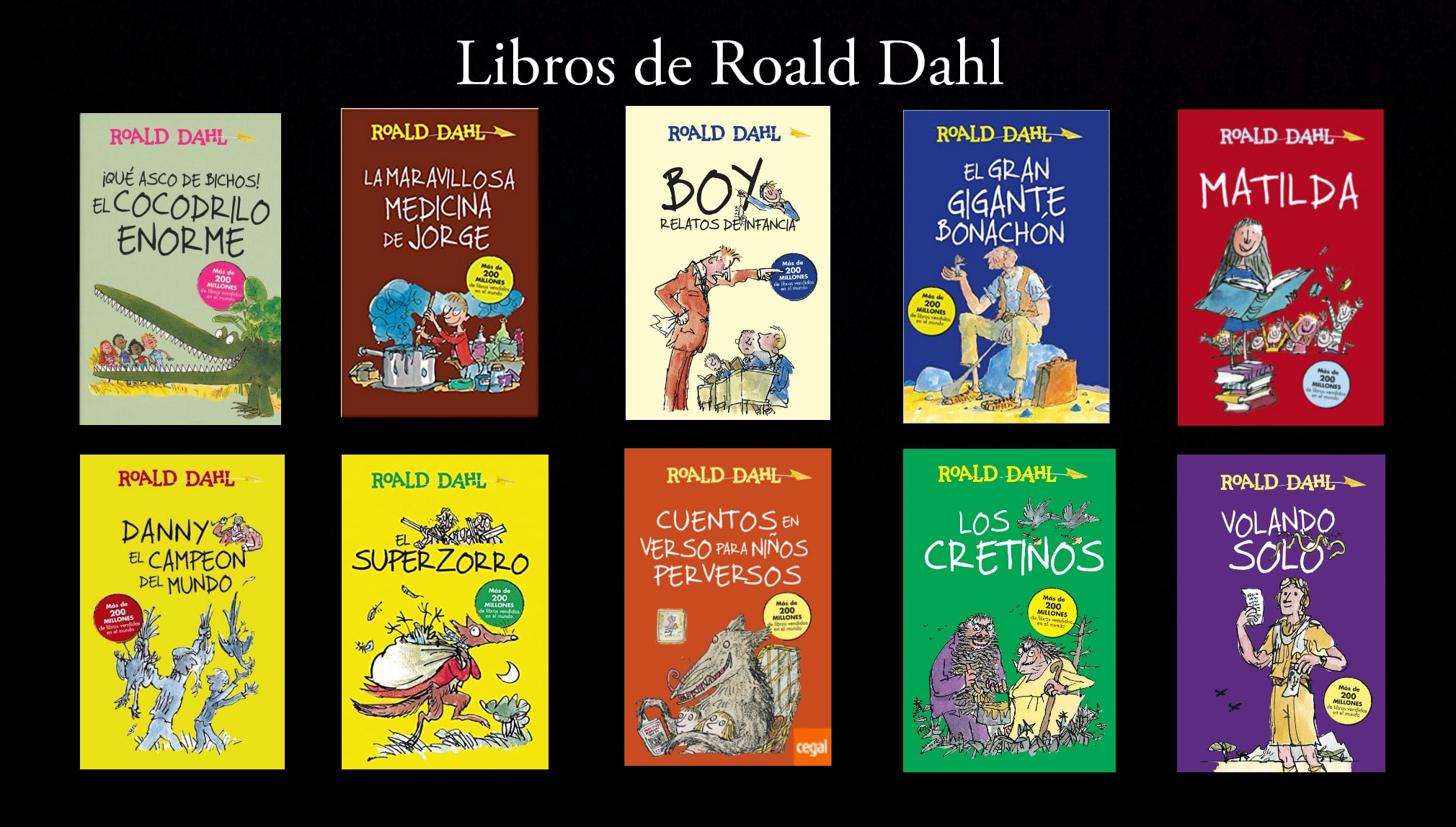
Roald Dahl quote.
Matilda is a classic of children's literature written by the renowned novelist Roald Dahl. Its original version in Anglo-Saxon was published in October 1988 and featured illustrations by Briton Quentin Blake. Its edition in Spanish was presented by Editorial Alfaguara with a translation by Pedro Barbadillo; this version retained Blake's work.
Matilda It is one of the most successful stories of the British author; today millions of copies of the work have been sold. The novel - despite being a children's book - conquered several generations, all thanks to the creativity and magnificent storytelling of the writer. Due to its notable impact, in 1996 the homonymous film adaptation of the novel was presented; the film was directed by Danny Devito.
Matilda Summary
Bright little
Matilda is a 5-year-old girl who lives with her parents and her brother in a small English town. She She is an intrepid and curious girl, who at only 3 years of age learned to read in a self-taught way. Since he discovered the universe of books, his life changed. In a very short time he read several authors, which expanded his knowledge in various areas.
Misunderstood by her family
Unfortunately, Matilda's parents did not value her talentThey considered her a phenomenon and constantly made fun of her. They, as punishment, they forced her to watch television for hours, they didn't buy her new books and they left her home alone every afternoon. It wasn't long before Matilda noticed that she was smarter than her parents, so she began to ignore their wild ideas about what's really important.
The library and school studies
Since Matilda was without her parents for much of the day, He decided to go to the library every day, in order to satisfy his desire to learn. In that place he felt extremely happy, because he could read without problems and gain new knowledge. Everything he assimilated with his readings allowed him to stand out from his peers of school.
Sweet teacher vs evil headmistress
Matilda's abilities with reading and math they surprised teacher Honey, who requested that she be promoted to level. Nevertheless, that was not well received by director Trunchbull, and, abusing his position, denied the request. This behavior did not surprise the educator, since the bad temper of the "authority" was already public knowledge; in fact, it was common for the vile woman to treat children with hatred and punish them without justification.
A change of life
Already entered the plot, Matilda discovered that she had another type of mental prowess: telekinesis (He could move objects with his mind). In developing that skill, Honey was very supportive. However, the discovery of That "super power" made Matilda have to face with more strength the two enormous obstacles that it had already suffered: the limitations imposed by His parents and the opposition and abuses of wicked Trunchbull.
Basic data of the work
It is a novel belonging to the genre of children's literature that unfolds over 248 pages divided into 21 short chapters. The history is told by an omniscient narrator. The text is presented with a simple vocabulary that allows a fluent and fast reading.
Characters
Matilda wormwood
It is the protagonist of the story. Is about a child prodigy with an incredible, caring personality and peculiar supernatural prowess. She is constantly rejected and harassed by her parents. The little girl's life changes when she enters elementary school, thanks to the support and love of her teacher and the relationships she establishes with her new friends.
Master Honey
She is a primary school teacher, loving and dedicated to her students. Matilda is one of the little ones under her charge. From the first meeting, both develop a very special affection. Their relationship strengthens over time, to the point that Honey becomes the key person in the life of the protagonist.
Director Trunchbull
In addition to being in charge of directing the elementary school, it is the antagonist of the work. Her personality is totally adverse to that of Master Honey. Physically it is described as a robust and ill-faced woman. Between his wicked tastes highlights the pleasure of exercising severe and cruel punishments to children, like locking them for hours in a dark room.
Mr. and Mrs. Wormwood
They are the biological parents of little Matilda. They both have bad habits and have a very low IQ. The mother is an unemployed gambler and superficial. For its part, the father is dedicated to trading vehicles of dubious origin, which keeps him in constant legal trouble.
Other characters
Michael is Matilda's older brother, a young man addicted to watching television and overrated by her parents - who use it to humiliate the child. In addition, there are Matilda's companions, among which Lavender stands out, an intrepid girl who becomes the best friend of the protagonist.
About the author, Roald Dahl

Roald Dahl.
Roald Dahl was born on September 13, 1916 in Cardiff, a town in Llandaff, Wales. His parents were Sofie Magdalene Hesselberg and Harald Dahl, both from Norway. He attended his primary grades at The Cathedra School and St. Peter's School, while the secondary ones were in the Repton school.
First jobs
At the age of 18 he began working at the Royal Dutch Shell, an oil company that allowed him to live in great luxury. In 1939, he joined the Royal Air Force, there he carried out his first flight training and six months later he was assigned to the 80th battalion of the RAF. In 1940,, while moving from Egypt to Libya, he had a serious accident that left him blind for two months.
Literary career
In 1942, began his career as a writerWithor first film was the play Easy peasy, which was published in the Saturday evening post. It is a story based on his plane crash. Then, he presented his first children's play: The gremlins (1943). The creation of these peculiar children's books brought him great literary recognition. Among his works, the successes stand out: Charlie and the Chocolate Factory (1964), The witches (1983) and Matilda (1988)
Dahl also dabbled in the adult genre, with tales of dark humor with unexpected endings. Throughout his career he wrote more than sixty stories of this type that were published in magazines such as: Harper's, Playboy y Ladies Home Journal. Later, these were compiled into anthologies. Also, some stories were adapted to film and television, such as: Men of the South y Stories of the unexpected.
In the 60s he wrote scripts for cinema, one of them was James Bond, Only you live twice, adaptation of a novel by Ian Fleming. In 1971 he adapted one of his children's books for the film Willy Wonka and the Chocolate Factory.
With the passing of the years, Dahl became a prominent writer. He handled novels, poetry, stories and scripts with ease. His consecration was made evident not only by his extensive and well-elaborated work, but also by managing to sell more than 200 million copies around the world.
Death
Roald Dahl died in Great Missenden on November 23, 1990, after losing the battle with leukemia.
Some works of Roald Dahl

Roald Dahl books.
Children's books
- The Gremlins (1943)
- James and the peach giant (1961)
- Charlie and the Chocolate Factory (1964)
- The magic finger (1966)
- The Super Fox (1970)
- Charlie and the great glass elevator (1972)
- Danny the world champion (1975)
- El huge crocodile (1978)
- The cretins (1980)
- Jorge's wonderful medicine (1981)
- The great good-natured giant (1982)
- The witches (1983)
- The giraffe, the pelican and the monkey (1985)
- Matilda (1988)
- Water Trot (1990)
- The vicar who spoke backwards (1991)
- The mimpins (1991)
Story anthology
- The great change (1974)
- Roald Dahl's Best Short Stories (1978)
- Genesis and catastrophe (1980)
- Extraordinary stories (1977)
- Tales of the unexpected (1979)
- Vengeance is mine SA (1980)
- Complete stories (2013)